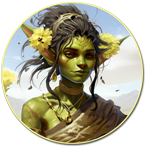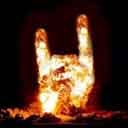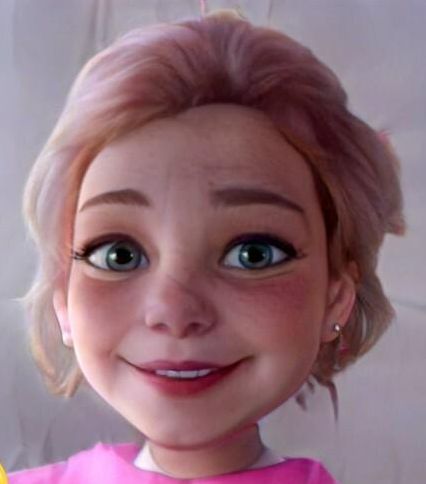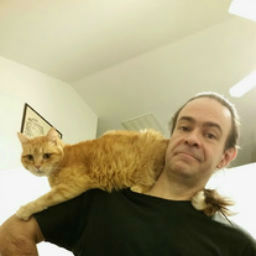Draelgit - Language of Earth
Xâ eteld máb ddâll draelgit? Evù ddâll rar, egra dî dâdd drálávrúnai ên tamîffril, egra ârn dî elaqitan. So you want to learn Draelgit? You're in luck, because it's probably one of the easier languages available in Elaqitan.-
Dialects & Sub dialects
1. North-Coimi
2. West-Coimi
3. East-Coimi
4. West-Ado
5. Middle-Ado
6. East-Ado
7. Nhîni
8. Idrusci
9. Irwa
10. Lari
11. North-Wotri
12. Oin-Wotri
14. North-Raxi
15. Evagoi
Elf = ændi ['æn.di]
| Writing | Pronunciation | Writing | Pronunciation |
|---|---|---|---|
| á | aʊ̯ | sa, so, su | ʃ |
| â, ê, î, ô, û | long | se, si, sá, sù | s |
| ai, oi | aɪ̯, ɔʏ̯ | th | θ at the end, otherwise t |
| c | k | ui | ih |
| ch | x | ù | y |
| dd | ð | v | w at the beginning, otherwise f |
| é | ay | w | u before consonant |
| h | unvoiced | x | ks |
| certain
Article |
more indefinite
Article |
Maskulin | Feminin | Neutrum | |
|---|---|---|---|---|---|
| Singular | the = lis ['lis] | a = dâdd ['da:ð] | without prefix | without prefix | without prefix |
| Plural | die = lisca ['lis.ka] | cl- before vowel
clâ- before consonant |
it- before vowel
itru- before consonant |
nâr- before vowel
nâri- before consonant |
|
| Example | Father = faithu / clâfaithu
['faɪ̯.tu] / ['kla:.faɪ̯.tu] |
Mother = moithá / itrumoithá
['mɔʏ̯.taʊ̯] / ['i.tru.mɔʏ̯.taʊ̯] |
Port = ulwál / nârulwál
['ul.waʊ̯l] / ['na:.rul.waʊ̯l] |
| 1. Nominativ | 2. Dativ | 3. Accusativ | 4. Instrumental | |
|---|---|---|---|---|
| after consonant | without Suffix | -ai | -á | -êgi |
| after vowel | without Suffix | -nai | -sá | -gi |
| Example | House = hux ['uks]
Book = thâvrù ['ta:.fry] |
huxai ['u.ksaɪ̯]
thâvrùnai ['ta:.fry.naɪ̯] |
huxá ['u.ksaʊ̯]
thâvrùsá ['ta:.fry.saʊ̯] |
huxêgi ['u.kse:.gi]
thâvrùgi ['ta:.fry.gi] |
Suntemple = eddulan âd mirui ['e.ðu.lan 'a:d 'mi.rih] orrectly translated "Temple of the Sun"
Verbs Verbs always come before all other words. Even when verbs are conjugated, the pronoun is placed after the verb.
| Person | Personal
Singular |
Possessiv
Singular |
Personal
Plural |
Possessiv
Plural |
Example without time indication |
|---|---|---|---|---|---|
| 1. | ain | ainâ | than | thanâ | I speak: drárath ain ['draʊ̯.raθ 'aɪ̯n ] |
| 2. | ddâll | ddî | vain | vaith | you have: dronibù vain ['dro.ni.by 'waɪ̯n ] |
| 3. | nù, swi, dî | nùth, swai, dith | trâ | trâch | it knows: gwræ dî ['gu.ræ 'di:] |
I do not / no speak = drárath noi / noiri ain ['draʊ̯.raθ 'nɔʏ̯ / 'nɔʏ̯.ri 'aɪ̯n ]
| Prefix | Active | Passive | Example |
|---|---|---|---|
| Present | es- before vowel
e- before consonant |
osa- [oʃ-] | I speak: edrárath ain ['e.draʊ̯.raθ 'aɪ̯n ]
... is spoken: osadrárath ... ['oʃ.draʊ̯.raθ] |
| Past | w- before vowel
w- (=u) before consonant |
wim- before vowel
wi- before consonant |
I spoke: wdrárath ain ['u.draʊ̯.raθ 'aɪ̯n ]
... was spoken: widrárath ... ['wi.draʊ̯.raθ] |
| Future | ic-before vowel
icu- before consonant |
ict- before vowel
ictu- before consonant |
I will speak: icudrárath ain ['i.ku.draʊ̯.raθ 'aɪ̯n ]
... will be spoken: ictudrárath ... ['ic.tu.draʊ̯.raθ] |
a small reptile = dâdd tomthi ên xeth ['da:ð 'tom.ti 'e:n 'kseθ]
to see bad = axæs ên hágsom ['a.ksæs 'e:n 'aʊ̯g.som]Adjectives are increased with the prefixes ta- 1st degree or tari- 2nd degree.
Without ingrease: tall = toiánn ['tɔʏ̯.aʊ̯nn]
1st degree: taller = tatoiánn ['ta.tɔʏ̯.aʊ̯nn]
2nd degree: tallest = taritoiánn ['ta.ri.tɔʏ̯.aʊ̯nn]
Derivations
| Adjective --> Noun | -ci | bright / brightness = îvril / îvrilci ['i:.fril / 'i:.fril.ki] |
|---|---|---|
| Adjective --> Verb | -is | dry / desiccate = grùldoith / grùldoithis ['gryl.dɔʏ̯θ / 'gryl.dɔʏ̯.tis] |
| Noun --> Adjective | -ld after vowel -ild after consonant |
hill / hilly = îdrâ / îdrâld ['i:.dra: / 'i:.dra:ld] |
| Noun --> Verb | -li after vowel -áli after consonant |
love / to love = lùmthux / lùmthuxáli ['lym.tuks / 'lym.tuks.aʊ̯.li] |
| Verb --> Adjective | -nd after vowel -œnd after consonant |
enchant / witchy = néx / néxœnd ['nay.ks / 'nay.ksœnd] |
| Verb --> Noun (action of the verb) | -vrú after vowel -ávrú after consonant |
to crown / coronation = conùdga / conùdgavrú ['ko.nyd.ga / 'ko.nyd.ga.fry] |
| Verb --> Noun (living creature that carries out the verb) | -ro/ri after vowel distinction m/w -ero/eri after vowel distinction m/w |
think / thinker = vûxa / vûxaro ['wy.ksa / 'wy.ksa.ro] |
I speak the language of earth. = Edrárath ain lis drælgit. ['E.draʊ̯.raθ 'aɪ̯n 'lis 'dræl.git.]W-questions are introduced with question words before the verb.
What is your name? = Tux esagi ddâll? ['Tuks 'e.sa.gi 'ða:ll ?]Yes/No questions are introduced by the word "Xâ" before the verb.
Are you sleeping? = Xâ esùbroth ddâll ? ['Ksa: 'e.sy.broθ 'ða:ll ?]
Pronouns
I, my - ain, ainâyou, your - ddâll, ddî
he, she, it - nù, swi, dî
we, our - than, thanâ
Verbs
be - brigubecome - drálwaw
can - hæ
do - lu
give - othta
have - dronibù
have to - stroi
say - cra
Nouns
earth - êlgîrtifood - erlá
forest - wôtri
house - hux
man - swîredu
village - oscî
water - âninhí
woman - fruwi
Numbers
one - ébtwo - swurt
three - drith
four - oscat
five - frax
Question words
Who - tixWhat - tax
Where - tex
How - tux
Other
the (sing.)/(plur.) - lis /liscaa - dâdd
some - scô
much - êrîra
and - ên
A
Âdocôris - realm of the goblinsÂnigox - water of magic (sea)
B
Brictælgis - fertile earth (continent)D
Drûddâci - Greenlings (mountains)Drûgael - sting
Drùntuim ad Smê - changing year calendar
E
Edifîngâ - Jar of Wisdom (library)Enaduin - Moss giant (mountain)
Esladrùs - cold bay
Êvâgox - east magic (city)
G
Gwâpragg - mountain shadow (species)I
Îdrusci - turquoise villageÎrwadri - blue mountains
Îrwu Cogoin - blue king (highest mountain)
Îrwuntra - blue river
Ivrâ ad Êsca - Northern Lights
L
Lâris - flowing leaflet (river)Lomlâruins - leaf city
Lwgoxinâ - magic mushroom
M
Mirâni - sun water (sea)N
Náhas ad Midri - Moon SoupNârinhinûcoi - night stone (mountains)
Nhin - night (river)
O
Oinâni - snow water (sea)Oininhi ad Îdrucoi - lake of turquoise stone
P
Prigg-Thâgi - fruit of victory (city)R
Râx Êvâri - Land of the EastS
Swîdru - turquoise riverSwùndrûdd - river of green
T
Taen Wôtris - silent forest (country)Thoininhi - lake of life
Thointris - life that flows (river)
Tirvox ad Coimi - Stone Crown (city)
Toiánính ad Midri - moon sea
Tùgwlduin - Ice Giants (mountains)
U
Ùlvugox - Magic Mushroom MeadowsW
Wadrîvi - mountainous land (country)Green leaf / Good mushroom on all your ways - lâru ên drûddâ / gox ên tratoth ddî tair cùc
Greetings stranger - edrae ain sânaci drui rùn
Welcome - gwenild sîrddai
Goodbye - tair swângavrù
Please - uc
Thanks - hoi
How are you? - Tux ebrigu ddî?
How do I get to …? - Tux eloc dri ain ...?
How much is it? - Tuxîra engae lis?
How much is it? - Tux esagi ddâll?
Where do you come from? - Tex eloc ta ddâll?
Cheers - saîd ên tratoth
Bon appetit - hal ên tratoth
Strong roots, strong people - taith ên idra, cvàl ên idris
A mushroom's honor - scâr lîn aed gox
Bloom in the heart - tintha ûx gwên
Strong and unbroken - idris ên frél
An old tree no longer bends - osavaeld noi dith dâdd lômlâræ ên tùr












Love it!!! The various dialects and details on how to pronounce words and the structure of sentences...superb!!!
Thank you so so much, I really appriciate it.